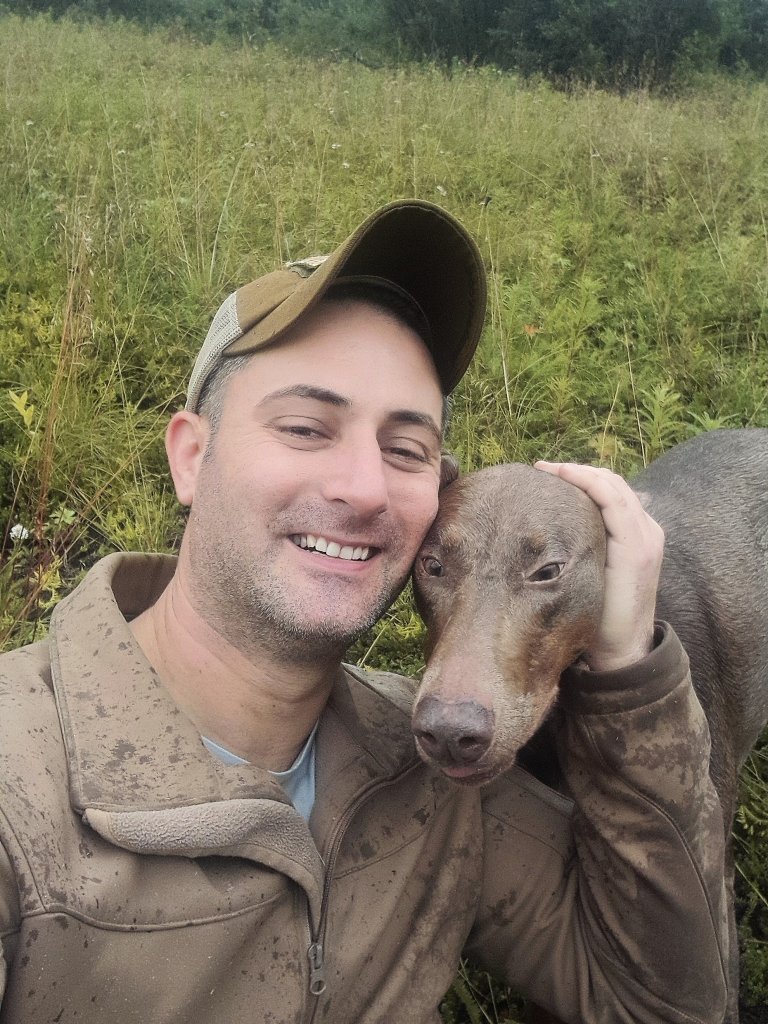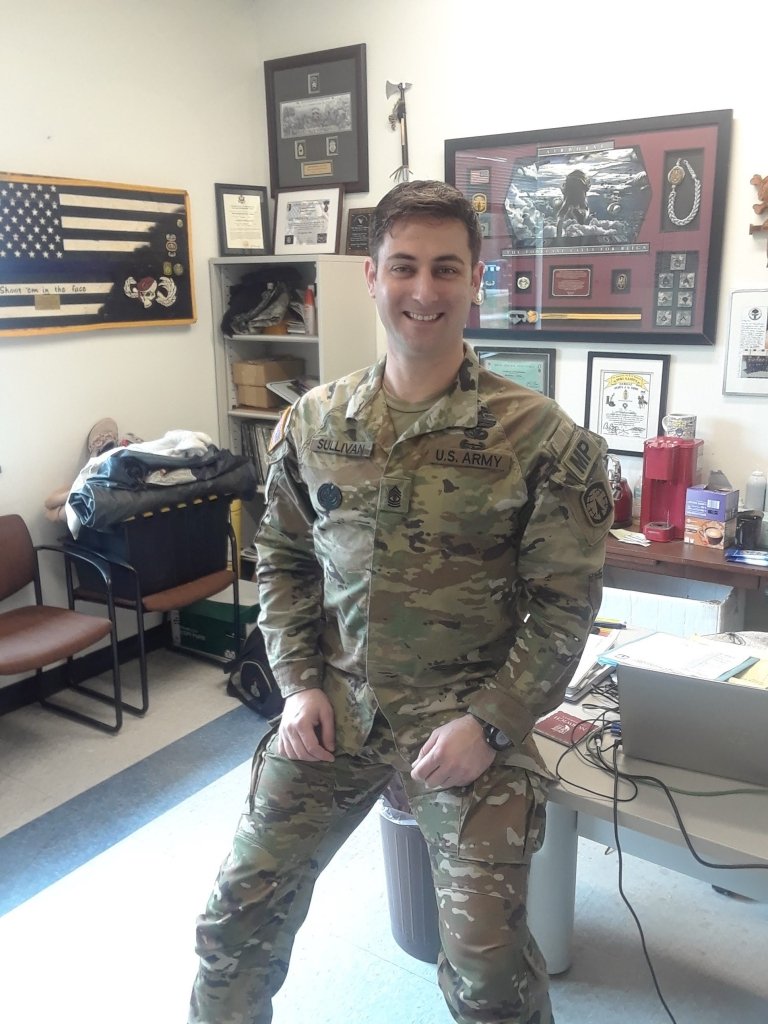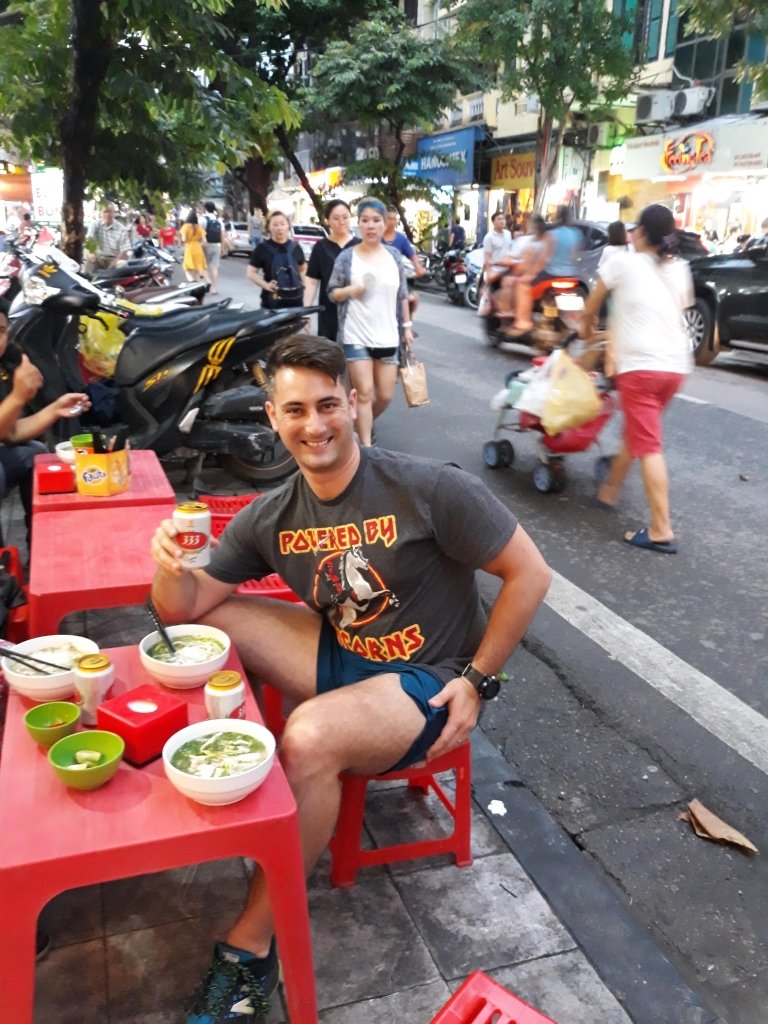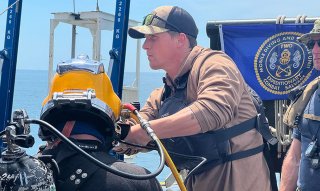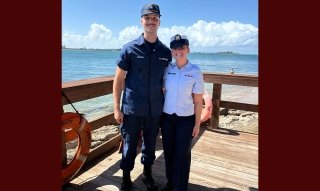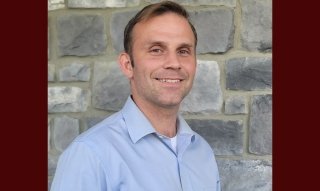Emerson Sullivan
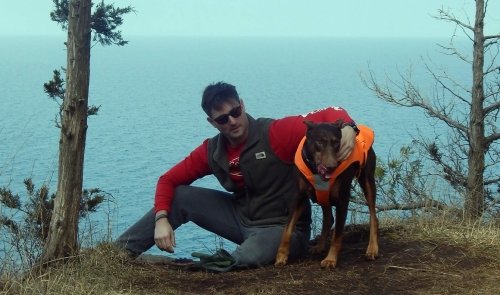
Everyone at Norwich was great. Even the admissions office and registrar went above and beyond to help me get through it.
From the Field to the Classroom and Beyond
When Emerson Sullivan enlisted in the Army Reserve at just 17 years old, he had two goals in mind: serve his country and secure an education that would set him up for long-term success. More than a decade later, Sullivan has achieved both, and his time at Norwich University Online played a pivotal role in shaping the leader he is today.
Choosing Education as a Strategic Advantage
Sullivan’s motivation to pursue a degree while actively serving came from a desire to ensure long-term mobility, both professionally and personally. “I always saw education as the opportunity for upward mobility, both during and after service,” he said. “In my experience, my education has given me a significant amount of credibility.”
That credibility became especially important in a military career where knowledge of law, policy, and ethics often intersects with diplomacy and national security. For Sullivan, earning a degree was part of a larger plan to be ready for life after service while enhancing his contributions in uniform.
Why Norwich Stood Out
Though Sullivan’s original plan was to pursue a commission through ROTC right after high school, his path took a different turn. Years later, when he discovered that Norwich offered fully online undergraduate programs, the opportunity to attend a Senior Military College while serving felt like a dream finally realized.
“I remember seeing brochures for Norwich when I was in high school,” he said. “It always stood out to me. When I saw they offered online degrees, I felt like I finally had a chance to attend Norwich while serving.”
What sealed the deal for him, however, was the university’s integrity in serving the military community. “Something else I liked about Norwich was that they didn’t prey on the military for tuition assistance money like I saw with other universities.”
Norwich’s reputation followed him beyond the classroom. While supporting a warfighter exercise with the 11th Airborne Division, Sullivan noticed a familiar ring on the hand of one of his senior mentors, Brigadier General (RET) Charles Masaracchia. It sparked an instant bond.
“We made an immediate connection over our shared Norwich background,” he said. “It was amazing to be able to interact comfortably with a general officer because of that shared experience.”
Overcoming Setbacks with Determination
Sullivan’s academic journey was not without challenges. During his very first class at Norwich, he suffered a traumatic injury to his right hand that required two reconstructive surgeries.
“I had to type my papers with just my left hand,” he recalled. “Back in 2015, we didn’t have text-to-speech accessibility like we do now. I was on medication and wearing this huge boxing-mitt bandage.”
Despite the circumstances, Sullivan never fell behind. With the help of accommodating professors, supportive staff, and a flexible learning environment, he pressed on. “Everyone at Norwich was great. Even the admissions office and registrar went above and beyond to help me get through it.”
Credit transfers also presented initial hurdles, but the head of the Criminal Justice program stepped in to personally ensure he received the maximum transfer credit for his associate degree.
From the Virtual Classroom to the Global Stage
Soon after completing his degree, Sullivan was selected for a strategic broadening seminar, a rare opportunity for noncommissioned officers. As part of the Regional Leader Development Program, he joined a cohort of officers and senior enlisted leaders who traveled to Australia, Vietnam, and Singapore to engage in high-level diplomacy.
One memory stands out. “I was sitting in a delegation with Vietnamese general officers in Hanoi, discussing water sustainability and China’s river blockades,” he said. “I wasn’t on the sidelines. I had a seat at the table.”
Sullivan credits the credibility and confidence he gained from Norwich with preparing him for moments like these. “I don’t think I would have had that opportunity if it were not for my Norwich degree. I was confident that the credibility extended to me.”
Translating Classroom Lessons into Military Success
Sullivan recalls taking a course on effective communication during a warfighter exercise. Sitting in a tent next to a JAG officer, he alternated between validating simulated artillery strikes and reviewing the course syllabus.
“That class helped me elevate my communication skills,” he said. “We even had discussions about sender-receiver dynamics and how to effectively synthesize information. Those skills became useful in so many scenarios.”
Norwich’s focus on real-world application prepared him to engage in high-stakes conversations involving the elements of national power: Diplomacy, Information, Military, and Economics (DIME), as well as interactions with U.S. State Department officials and foreign allies.
Managing the Workload While Wearing the Uniform
Balancing a full-time Army schedule with Norwich coursework required strategic time management. “Norwich assignments were due on Saturdays, not Sundays like other programs,” he said. “It forced me to stay ahead during the week.”
Sullivan mapped out his academic calendar against his military obligations and relied on long-term planning to stay on track. “Every professor I had at Norwich was incredibly supportive. They understood the challenges of being active-duty and helped me work through those nuances.”
For other servicemembers considering higher education, Sullivan emphasizes that the workload is manageable. “It wasn’t easy, but it wasn’t hard either. And it’s even more manageable now with the connectivity we have today.”
Words of Advice for Future Students
Sullivan urges fellow service members to be intentional about their educational paths. “You’re competing against people who took advantage of educational opportunities. Don’t get a degree just to get a degree. Get one in something you’re passionate about from a school with credibility.”
He often shares his story with junior NCOs and emphasizes Norwich’s legacy as a Senior Military College and the oldest private military academy in the nation. “When I talk to soldiers about credibility, that’s one of the things I bring up.”
One quote he returns to often comes from a former platoon sergeant: “The military has a 100 percent attrition rate.” For Sullivan, that means it is never too early or too late to prepare for what comes next.
Looking Forward
As Sullivan begins to plan for life after the Army, Norwich continues to be part of his journey. He is considering enrolling in the university’s graduate certificate in Intelligence and National Security, a decision driven by both personal interest and confidence in the program’s leadership.
“I want to continue learning, and I know Norwich has the credibility to take me even further.”

